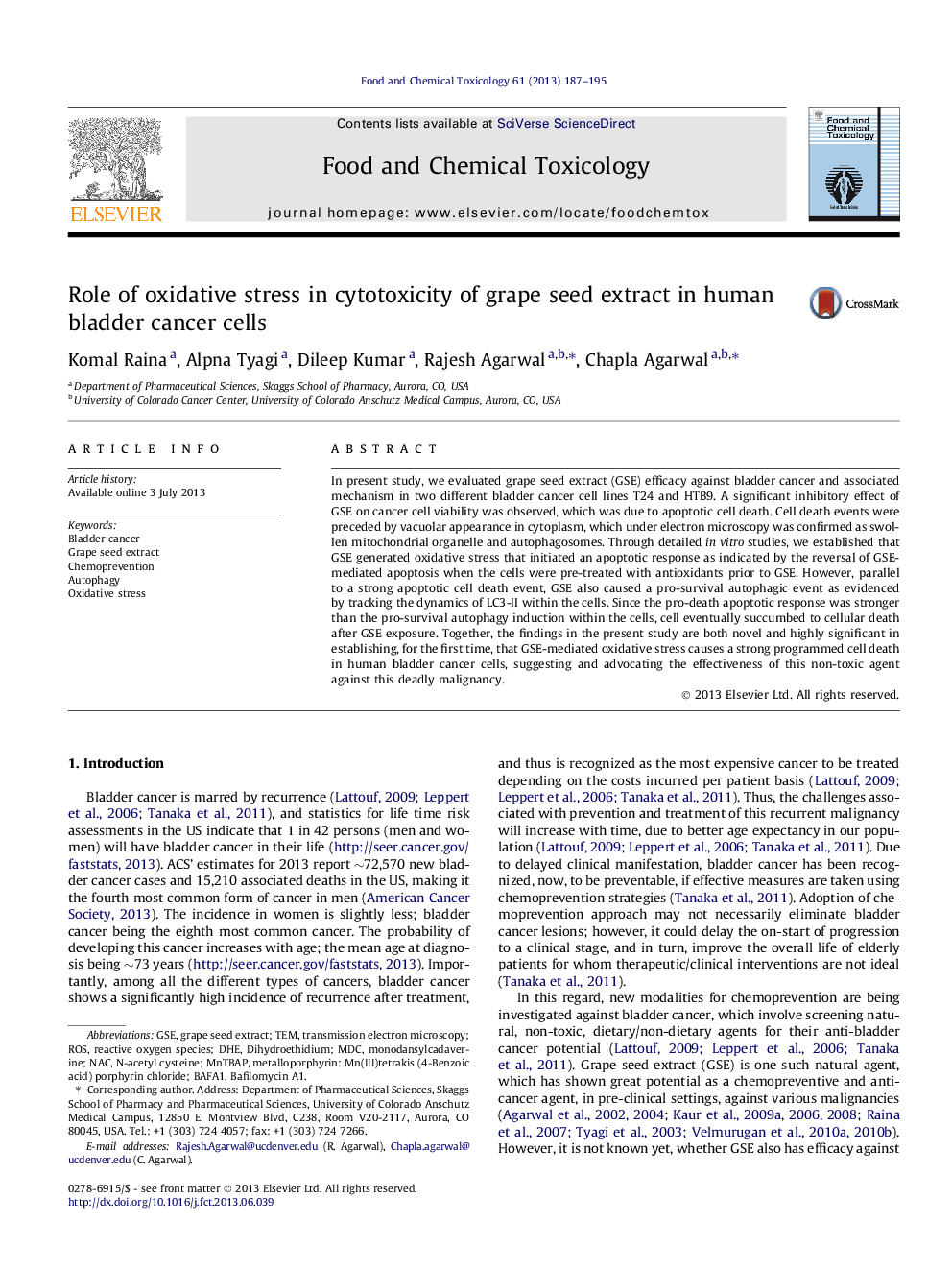| Article ID | Journal | Published Year | Pages | File Type |
|---|---|---|---|---|
| 2585180 | Food and Chemical Toxicology | 2013 | 9 Pages |
•For the first time, we showed a strong anti-cancer efficacy of grape seed extract (GSE) in human bladder cancer cells.•Mechanistic studies showed that GSE causes generation of superoxide radical in human bladder cancer cells.•GSE-caused oxidative stress leads to autophagy and a strong apoptotic cell death in human bladder cancer cells.
In present study, we evaluated grape seed extract (GSE) efficacy against bladder cancer and associated mechanism in two different bladder cancer cell lines T24 and HTB9. A significant inhibitory effect of GSE on cancer cell viability was observed, which was due to apoptotic cell death. Cell death events were preceded by vacuolar appearance in cytoplasm, which under electron microscopy was confirmed as swollen mitochondrial organelle and autophagosomes. Through detailed in vitro studies, we established that GSE generated oxidative stress that initiated an apoptotic response as indicated by the reversal of GSE-mediated apoptosis when the cells were pre-treated with antioxidants prior to GSE. However, parallel to a strong apoptotic cell death event, GSE also caused a pro-survival autophagic event as evidenced by tracking the dynamics of LC3-II within the cells. Since the pro-death apoptotic response was stronger than the pro-survival autophagy induction within the cells, cell eventually succumbed to cellular death after GSE exposure. Together, the findings in the present study are both novel and highly significant in establishing, for the first time, that GSE-mediated oxidative stress causes a strong programmed cell death in human bladder cancer cells, suggesting and advocating the effectiveness of this non-toxic agent against this deadly malignancy.
